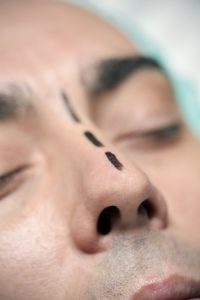
One of the most important parts of human health is positive self-image. In fact, in 2015 there were 15.9 million minimally-invasive surgeries done in the United States, a 2% growth from 2014. Cosmetic surgery, unfortunately, has a stigma attached to it.
Facelift, breast lifts, rhinoplasty (nose job), liposuction, the plastic surgery list goes on. While it’s certainly our goal to dispel all myths and stigmas around plastic surgery, today the focus is right down the nose.
Rhinoplasty is a popular procedure both cosmetically and functionally. Yet, it’s often misunderstood, and adding to that misunderstanding, we have Hollywood, Dr. 90210, Nip Tuck, and the like. While all of that is dramatized, it doesn’t help in demystifying the procedure. Let’s look at some nose job myths that will shed a little light on the truth of the subject.
Not Any Plastic Surgeon
As with any medical practice, specialization must be paid attention to. The same goes for plastic surgery. Plastic surgeons who specialize in facial cosmetic surgery are the ones who should be doing rhinoplasty. Do your research and meet doctors before committing to the procedure.
Your Nose Is Still Your Nose
Lots of patients are under the impression that rhinoplasty works miracles, as if they can pick their new nose out of a catalog. While practices have advanced, it’s essential to realize that your nose is still your nose and that any change will be using your nose as a foundation from which to work. Improving appearance and function together is the practice of a good plastic surgeon.
It’s Not Always Surgical
Rhinoplasty, while used to reshape the nose and correct nasal issues, doesn’t always have to be surgical. In fact, more and more patients are electing for non-surgical rhinoplasty procedures using fillers. These procedures are minimally invasive, and can help correct any small aesthetic issues a patient may be having.
Post-Surgery Problems
Rhinoplasty recovery is quite innocuous. Of course, with any surgical procedure there will be a mild amount of discomfort, but nothing beyond some slight bruising, swelling, and nasal congestion. Most patients find their rhinoplasty recovery takes about two weeks, with little detracting from their lives other than a decrease in strenuous activities. There are always exceptions and complications, so be in contact with your surgeon if anything doesn’t feel right.
If you’re planning a cosmetic surgery, don’t buy into the stigma. Your appearance and self-image are important to having a happy, fulfilled life. Talk to a specialist about your plans today.
